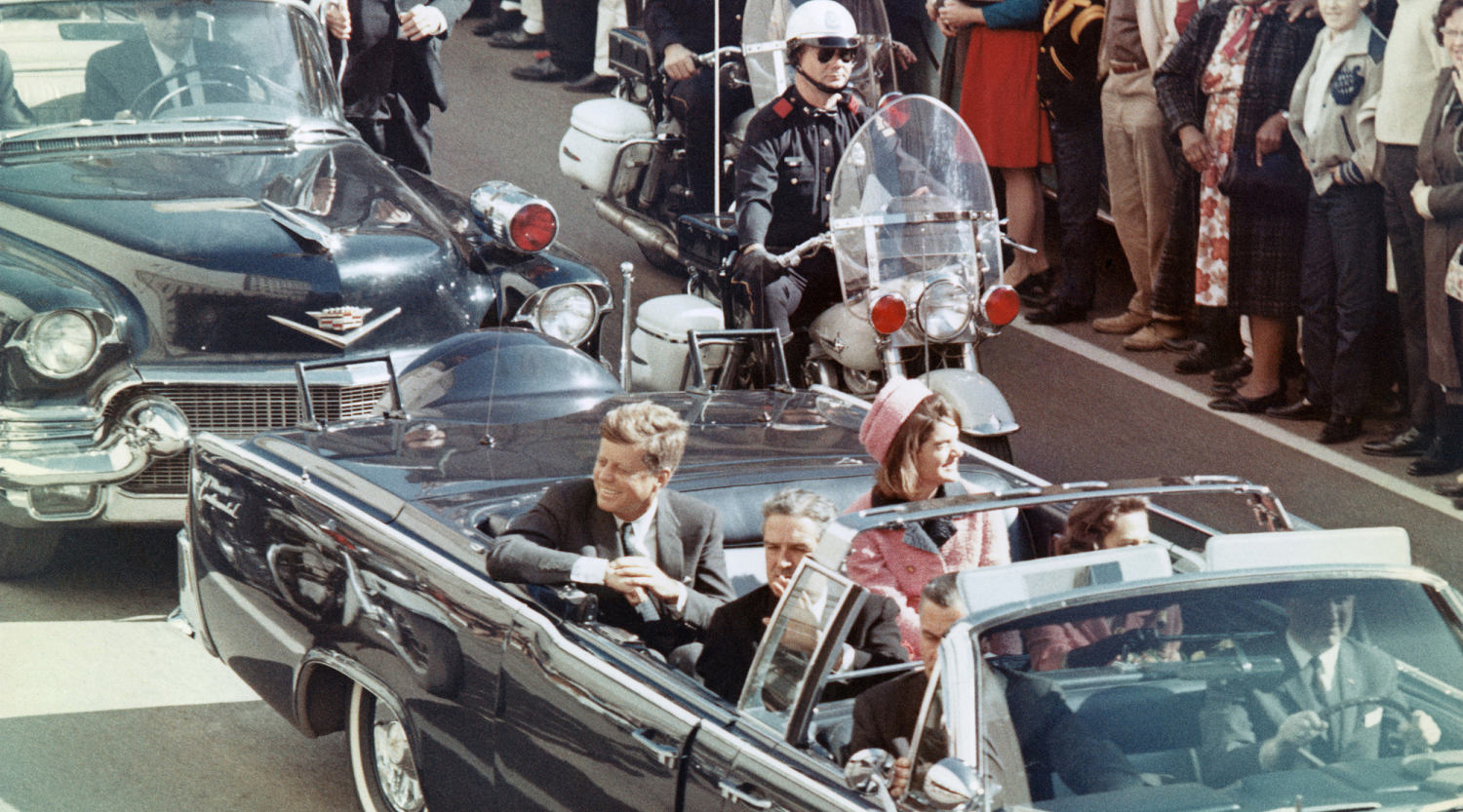

WASHINGTON — Last year marked the 60th anniversary of the assassination of President John F. Kennedy in Dallas, and despite widespread public skepticism surrounding the official narrative of the case and legislation mandating transparency, there are still 4,700 documents related to the case that are partially or heavily redacted.
The assassination of Kennedy has remained an enduring mystery in the public imagination. A live operator interview poll of 2,000 voters commissioned by the Mary Ferrell Foundation, an organization dedicated to maintaining records related to the assassination, found that only 38% of Americans believed that Lee Harvey Oswald acted alone. Gallup polling since 1963 has consistently found this skepticism to be widespread.
The ongoing debate about the release of the JFK documents has made its way into the 2024 presidential election. Independent presidential candidate Robert F. Kennedy Jr. — Kennedy’s nephew, who is known for pushing conspiracy theories that are outside of the mainstream — has long been outspoken about his disbelief in the official narrative surrounding his uncle’s death. In July of this year, former President Donald Trump posted an interview on Truth Social of Robert F. Kennedy Jr. criticizing President Joe Biden’s decision to block the complete release of remaining documents.
“When I return to the White House, I will declassify and unseal all JFK assassination-related documents,” Trump wrote “It’s been nearly 60 years, time for the American people to know the TRUTH!”
Jefferson Morley, a writer who has chronicled the events surrounding Kennedy’s assassination and is vice president of the nonpartisan Mary Ferrell Foundation, said the group — which pushes for more disclosures about the events surrounding Kennedy’s death — “did not expect JFK’s assassination to be an issue in the 2024 election. But it is and it doesn’t surprise us.”
Morley summed up why he thinks the release of the remaining documents is so important: “If you want to get full disclosure on 9/11, unidentified aerial phenomenon, you’ve got to start with JFK. OK, if the CIA gets their way on the murder of a president, you know, then they’re going to get their way on other issues.”
The President John F. Kennedy Assassination Records Collection Act of 1992, passed 30 years ago unanimously in the House and Senate, mandated that all records related to the assassination be reviewed and released by 2017, unless there was an “identifiable harm to the military defense, intelligence operations, law enforcement, or conduct of foreign relations” and “the identifiable harm is of such gravity that it outweighs the public interest in disclosure.”
Since the original deadline in 2017, the documents have largely been released, but a total release has been pushed back several times by both Trump and Biden.
These delays have been met with opposition by groups interested in the history of the assassination, including the Mary Ferrell Foundation, which is currently suing Biden and the National Archives over what it says is a lack of compliance with the act. The reasons for the lawsuit are not simply limited to the group’s skepticism. Morley, an author of several books on the history of the CIA, says that one of the reasons the lawsuit was filed was to get access to more records from the archive and to help verify the number and types of remaining documents.
In a statement to NBC News, the National Archives said that nearly half of the remaining documents are beyond the president’s jurisdiction to declassify. These include documents such as IRS records and grand jury depositions. It asserts there are no classified documents that remain withheld in their entirety.
The latest unredacted portions have contained compelling information — detailing how the CIA had an agent read Oswald’s mail in June of 1962, one year before Kennedy’s assassination. That agent’s name has now been revealed to be Reuben Efron, who was also present during the Warren Commission’s interview of Oswald’s widow, Marina. The CIA did not have a comment on the reason for the delay of the release of his identity.
A memoir recently published by former Secret Service agent Paul Landis reignited speculation over the assassination with his explosive claim that he had found and pocketed an extra bullet found in the car in which Kennedy was shot. This claim is disputed by other Secret Service agents present that day.
Rep. David Schweikert, R-Ariz., this past summer proposed the Justice for Kennedy Act, which would immediately release all remaining documents in full.
“It’s been nearly 60 years since President John F. Kennedy was assassinated,” Schweikert said in a statement. “More than enough time has passed for these records to no longer pose national security risk. We must have a much more open government in order for institutions to begin to regain the trust of the American people, and that starts with freedom of information. We have to start treating American citizens like adults.”
The documents related to the assassination of Kennedy are hardly the only classified documents eagerly sought by the public. Biden announced a declassification review into 9/11 documents in the fall of 2021, and Sens. Chuck Schumer, D-N.Y., and Mike Rounds, R-S.D., recently proposed an amendment to the National Defense Authorization Act that would declassify documents, using the JFK Records Act as a model.
A spokesperson for the CIA said in a statement that the agency was committed to “ensuring maximum transparency” and that “all of its information known to be directly related to the assassination of President John F. Kennedy in 1963 has already been released.”